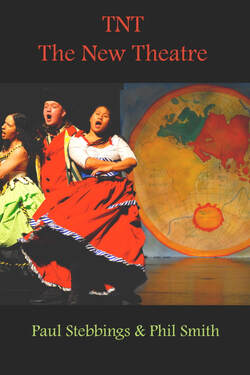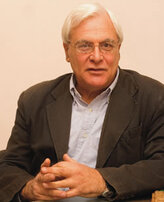
Publication: 3rd June 2020
List Price: £22.00 Available here for £18 Format: ~ Paperback - 280 pages Size: 23.4 x 15.6 cm ISBN: 978-1-911193-83-8 Tags: theatre, new theatre, popular theatre, experimental theatre, Meyerhold, touring theatre Buy the paperback (£18)Buy the pdf (£15)Click the 'Buy' button below. At checkout, click No postage on ebooks from the dropdown.
After paying, we will send an immediate confirmation and email your ebook file within 24 hours. pdf ISBN: 978-1-911193-85-2
version: bookmarked pdf (pdf text cannot be edited, printed or copied - email us if you need this capability.) ReadershipTNT - The New Theatre is for anyone who has ever seen a TNT or ADG Europe production, for directors, playwrights, actors, dramaturgs and theatre designers anywhere and for theatre studies and drama students.
Read more:What is Acting?
Paul reads an extract: TNT in Iran 2004
Paul reads a second extract Listen to Phil Smith interviewed about the book on Yale Radio by Brainard Carey
|
|
From a first-hand account of working with Jerzy Grotowski to an analysis of the art of writing for the stage; from the hazards of touring in the Emirates to the dramas of touring behind the Iron Curtain in the 1980s; from an analysis of the role of the set and stage music to the story of taking Shakespeare to China... this is an extraordinary, wide-ranging, funny, clever account of 40 years in the life of the most successful touring theatre company of all time.
In 1990, in the dying days of Gorbachev's Soviet Union, Paul Stebbings stood on the stage of the Leningrad State Comedy Theatre and performed to a packed audience in the role of Stalin.
In ‘Wizard of Jazz’ and other plays TNT ripped into some of the darkest recesses of the ‘American Dream’. They explored racism, poverty and inequality, soulless commerce, witch hunts, and the seeds of fascism inside US culture. Across these productions TNT sounded a long warning about the dangers of having illusions in the rhetoric of ‘freedom’ coming from the USA: a country that locked up a staggering percentage of its black population, was dominated in large areas by leaders who believed that the world had been made in six days and that human and dinosaurs co-existed, and ran its fossil-fuel based economy with entire disregard for its great-grandchildren.
The greatest crime of all is an actor seated behind a table. What is there left except a floating head? TNT uses as little furniture as possible. Even in the banquet scene in ‘Macbeth’ we have no table. We performed the whole of ‘Julius Caesar’ without a single chair. But some seats are better than others; stools are good because they leave the body visible, thrones are powerful image-things that need to be occupied rather than sat upon. An upturned dustbin in ‘Pygmalion’ can create an image, informing Alfred Doolittle’s rough and ready character.
In Dresden, a few days after the fall of the Berlin Wall, the authors found themselves in a march against the regime, at the time when its leader, Erich Honecker, was proposing a motion to his party’s Central Committee that protesters like us should be fired upon. Fortunately, his motion was defeated.
“....the actors.... must have open, dilated bodies and an emotional warmth as the audience’s very positive reflections.... from whatever tradition it does not matter.... as long as those trainings apply principles of movement springing from the lower trunk, that open the body, and are expressed in terms of oppositions within the body....”
In 1990, in the dying days of Gorbachev's Soviet Union, Paul Stebbings stood on the stage of the Leningrad State Comedy Theatre and performed to a packed audience in the role of Stalin.
In ‘Wizard of Jazz’ and other plays TNT ripped into some of the darkest recesses of the ‘American Dream’. They explored racism, poverty and inequality, soulless commerce, witch hunts, and the seeds of fascism inside US culture. Across these productions TNT sounded a long warning about the dangers of having illusions in the rhetoric of ‘freedom’ coming from the USA: a country that locked up a staggering percentage of its black population, was dominated in large areas by leaders who believed that the world had been made in six days and that human and dinosaurs co-existed, and ran its fossil-fuel based economy with entire disregard for its great-grandchildren.
The greatest crime of all is an actor seated behind a table. What is there left except a floating head? TNT uses as little furniture as possible. Even in the banquet scene in ‘Macbeth’ we have no table. We performed the whole of ‘Julius Caesar’ without a single chair. But some seats are better than others; stools are good because they leave the body visible, thrones are powerful image-things that need to be occupied rather than sat upon. An upturned dustbin in ‘Pygmalion’ can create an image, informing Alfred Doolittle’s rough and ready character.
In Dresden, a few days after the fall of the Berlin Wall, the authors found themselves in a march against the regime, at the time when its leader, Erich Honecker, was proposing a motion to his party’s Central Committee that protesters like us should be fired upon. Fortunately, his motion was defeated.
“....the actors.... must have open, dilated bodies and an emotional warmth as the audience’s very positive reflections.... from whatever tradition it does not matter.... as long as those trainings apply principles of movement springing from the lower trunk, that open the body, and are expressed in terms of oppositions within the body....”




